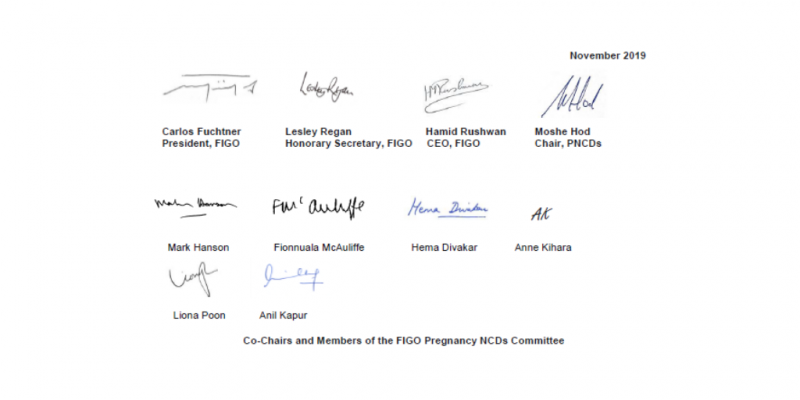FIGO Pregnancy Obesity and Nutrition Initiative (PONI)
FIGO's Committee on Pregnancy and Non-communicable Diseases presents their Statement on the Pregnancy Obesity and Nutrition Initiative (PONI)
FIGO's Committee on Pregnancy and Non-communicable Diseases presents their Statement on the Pregnancy Obesity and Nutrition Initiative (PONI)
The challenge:
Non-communicable diseases (NCDs) including cardiovascular and lung disease, diabetes and some forms of cancer account for over 70% of deaths around the world every year and have widespread economic and social consequences. The risk of NCDs can be passed across generations, but this has not been sufficiently recognised to date. Pregnancy is therefore a window of opportunity for giving women and their children a life free from NCDs.
Addressing all forms of malnutrition, promoting breastfeeding and preventing obesity is critical, in all populations.
- The World Health Organization reports that 1 in 3 people around the world suffer from the effects of some form of malnutrition.
- The NCD Risk Factor Collaboration predicts that by 2025 more than 21% of women in the world will be obese.
- NCD risks are transferable from mother to baby.
- Healthy body weight and balanced nutrition before, during and after pregnancy can prevent NCDs in both women and their children.
- Acting to reduce obesity and malnutrition in women of reproductive age and their partners is critical to achieving many of the Sustainable Development Goals.
We declare that:
- Advice on nutrition and weight management should be given priority at every contact with reproductive age women and their partners.
- Women and their partners should be provided with information and guidance to help them prepare for conception and pregnancy, at the right age and in good health (appropriate body weight, nutrition and fitness), to achieve best pregnancy outcomes and a healthy start to life for their children.
- Pregnancy offers a golden opportunity for improving maternal and child health and preventing transmission of NCD risks, thus offering women and their children a higher probability of a life free from future NCDs.
- Ensuring coordinated pathways of healthcare through preconception, pregnancy and postpartum periods is essential.
- Pregnancy offers a bridge for integration of activity across agriculture, health, social protection, water and sanitation, and education sectors, and to community development
We agree to undertake actions in our various individual and collective capacities to:
- Promote and encourage the implementation of FIGO Guidelines on Adolescent, Preconception and Maternal Nutrition - ‘Think Nutrition First’ – and on Obesity in Pregnancy, along with the use of the FIGO Nutrition Checklist with every reproductive age woman, as part of routine maternal health provision and antenatal care services.
- Increase understanding and build capacity around the importance of appropriate body weight, nutrition and fitness in the preconception, pregnancy and postpartum periods of the life-course, through comprehensive training of all levels of health professionals involved with reproductive, maternal and child health.
- Support efforts to address the needs of women and their partners through a continuum of care in the preconception, pregnancy and postpartum periods of the life-course.
- Advocate for action and accountability on PONI at all levels and with all stakeholders.
- Call for greater international attention to the link between maternal health and NCDs as part of the 2030 Agenda for Sustainable Development (SDGs)

Contact